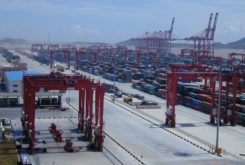The cancellation of non-taxable allowances for companies that employ foreign employees is expected to significantly raise human resource costs for companies, according to the European Chamber of Commerce in China (ECCC).
In a comment to the new regime, the ECCC says the new rules should also “deter expatriate assignments and negatively impact foreign investment”.
As part of China’s individual income tax reform announced in 2018, the transition period for the phase-out of relevant non-taxable allowances like housing allowance, children’s tuition allowance, relocation allowance, language allowance etc. granted to foreign employees will end on 1st January 2022. From that day, three critical expense allowances (children’s education, housing and language training) are to become taxable.
According to the European Business in China Business Confidence Survey 2021 released on 8th June, European Chamber member companies view housing rental (45%) and children’s education fees (28%) remaining non-taxable as the most significant benefits for attracting high-level talent to China. “When such benefits become fully taxable in 2022, the taxable income of those foreign workers will dramatically increase, and either companies or individuals will be left to foot the bill”, the ECCC says.
A fifth of respondents already have plans to reduce the number of foreign assignments to China due to the ending of non-taxable benefits. 43% of those surveyed state that it is too early to tell if they will reduce foreign assignments to China, suggesting that they are still unaware of the full extent of the changes and what the impact will be. A full 37% of respondents do not plan to adjust foreign headcount as a result.
“In many cases, the IIT reform will severely curtail the number of foreign assignments to China, particularly those with children. As these assignments tend to be in mid- to high-level positions, their curtailment will lead in turn to a decrease in investments”, according to the ECCC.
28% of MNCs plan to shift investment and/or foreign talent out of China due to non-taxable benefits becoming taxable. “Many European multinationals attest to the fact that the existing policy has helped them to attract and maintain foreign employees with the expertise necessary for strategic development of their operations in China. Once the taxable benefits are removed, China may no longer be such an attractive hub from which to build a regional presence, leading some companies to cancel or postpone their investment plans and look for alternatives like Hong Kong or Singapore”, the ECCC adds.




